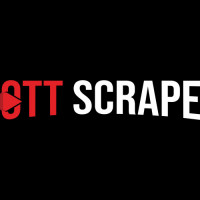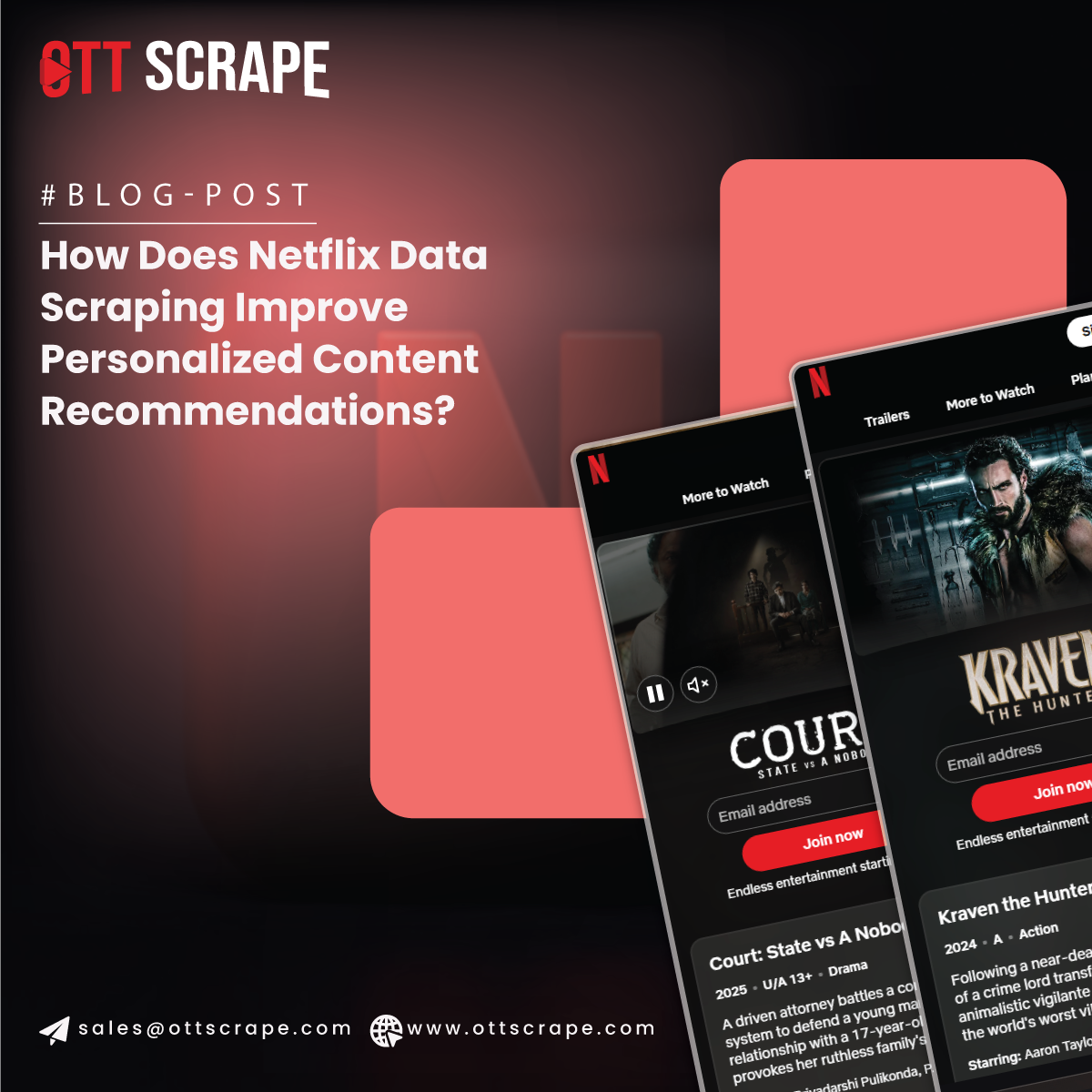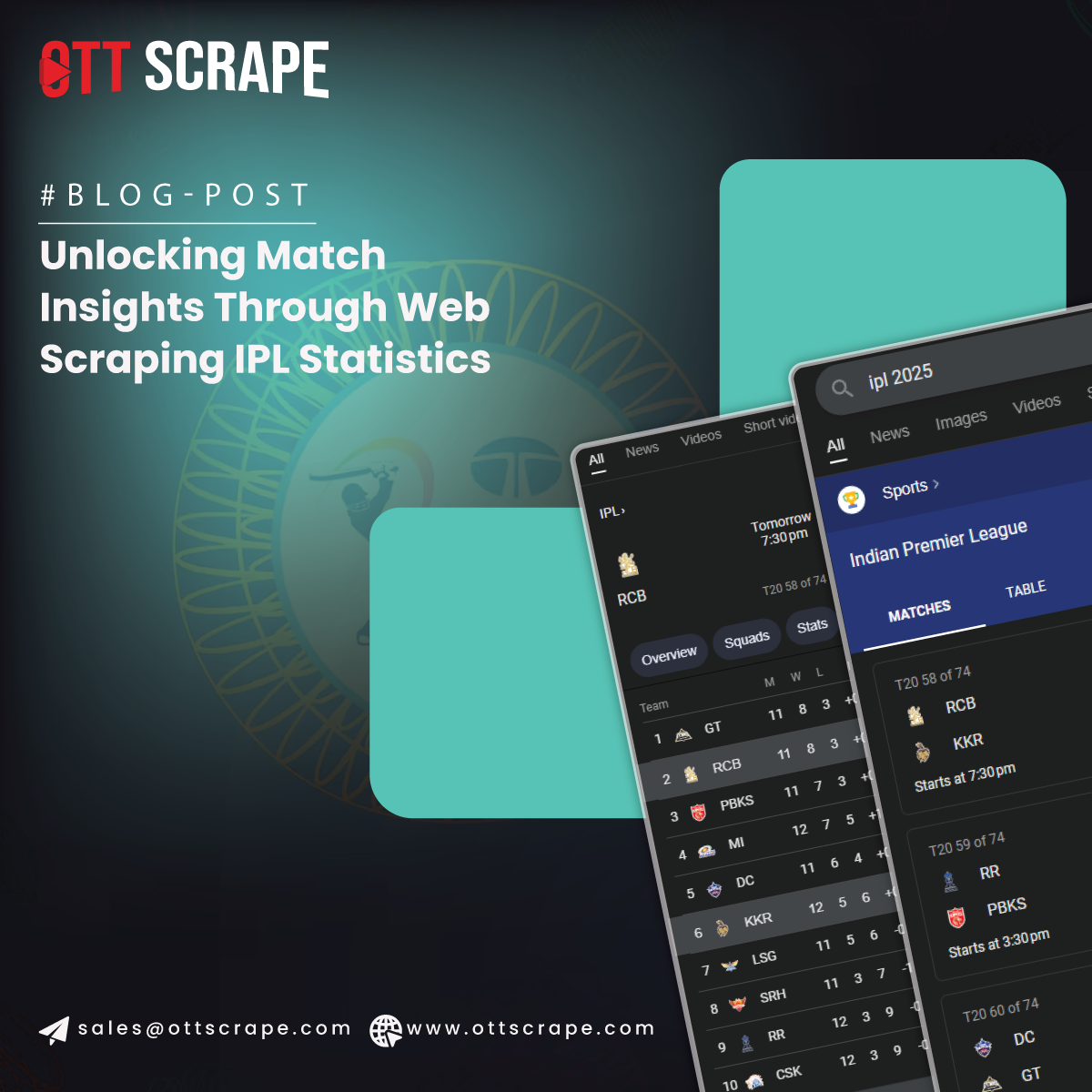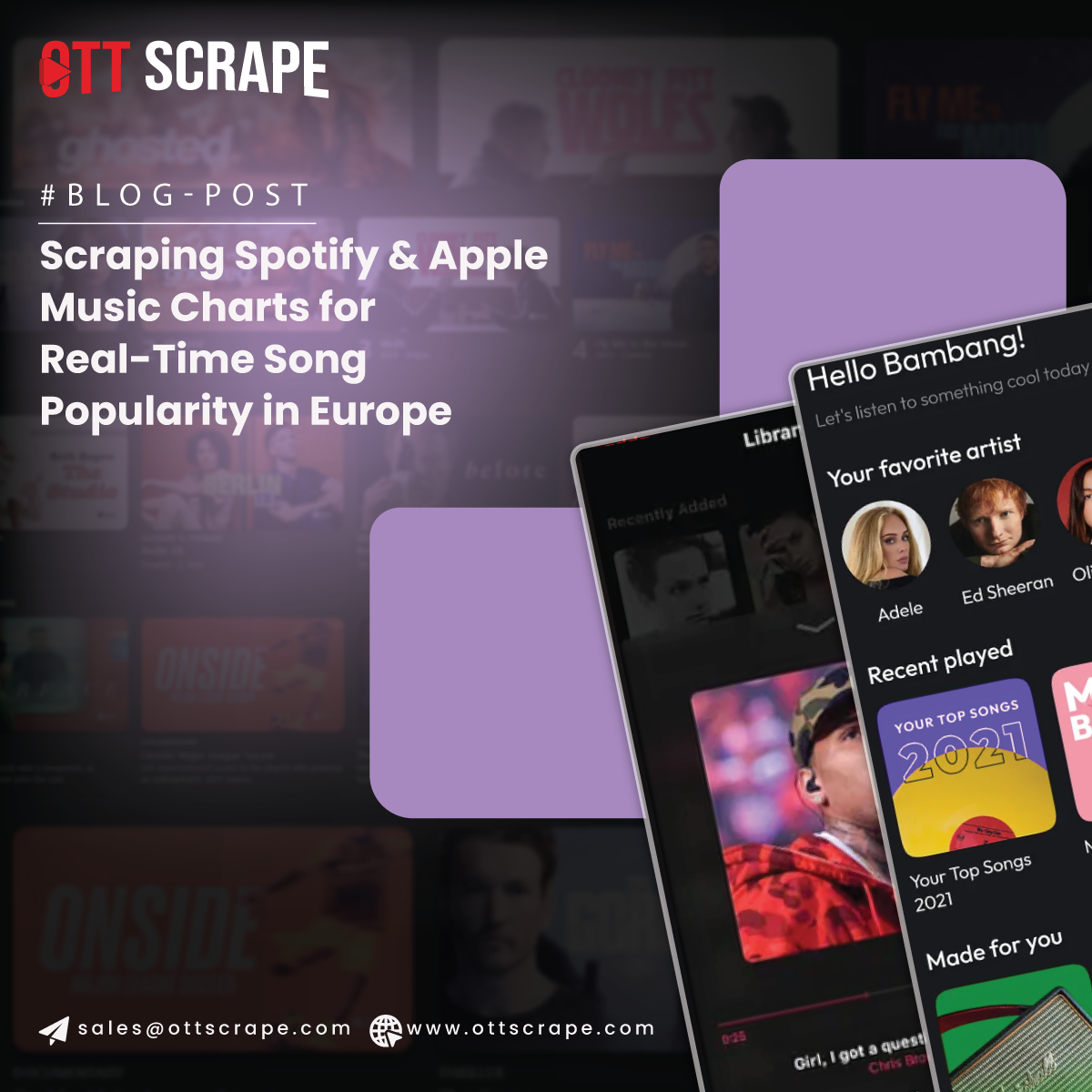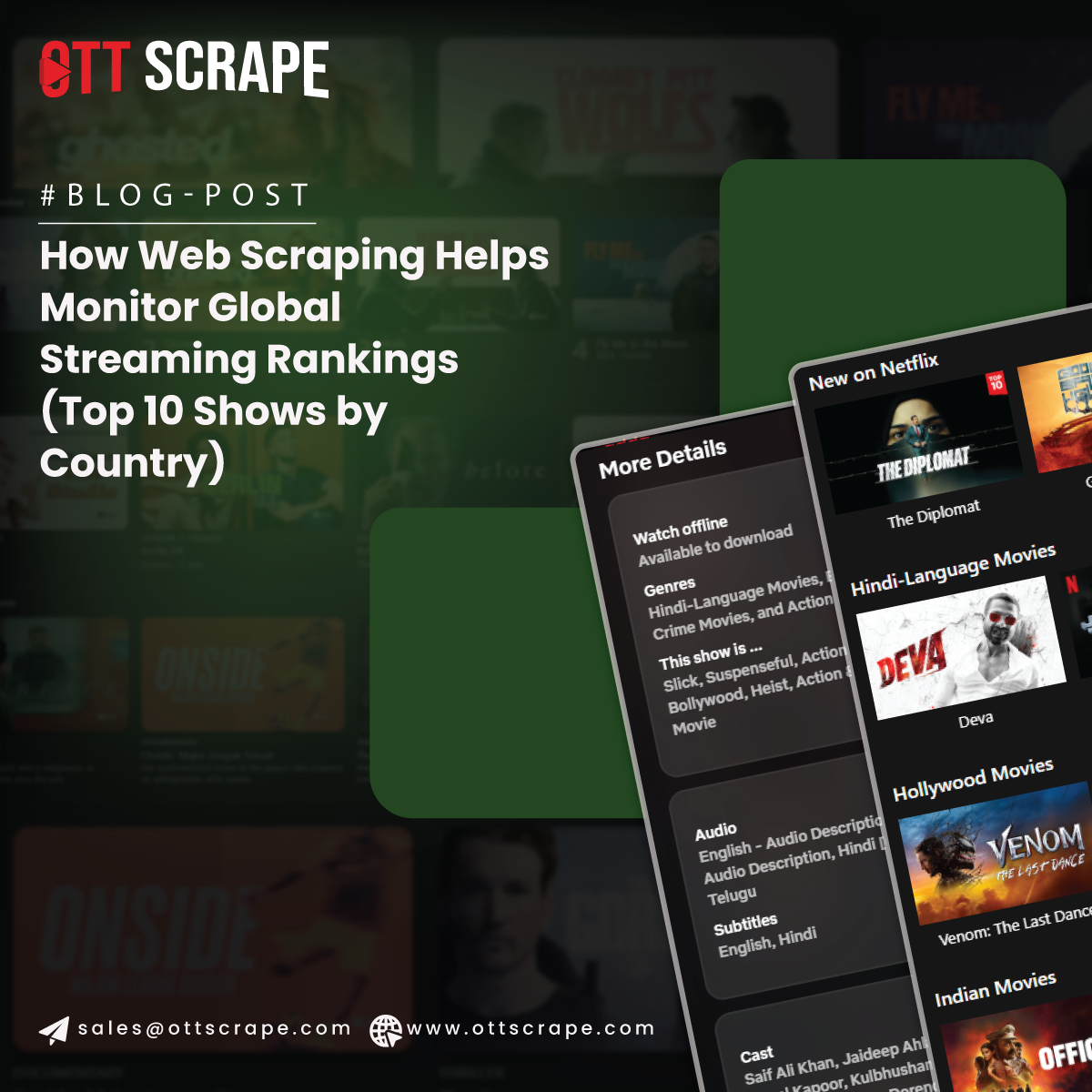Track Movie Popularity Using Fandango Movie Data Scraping
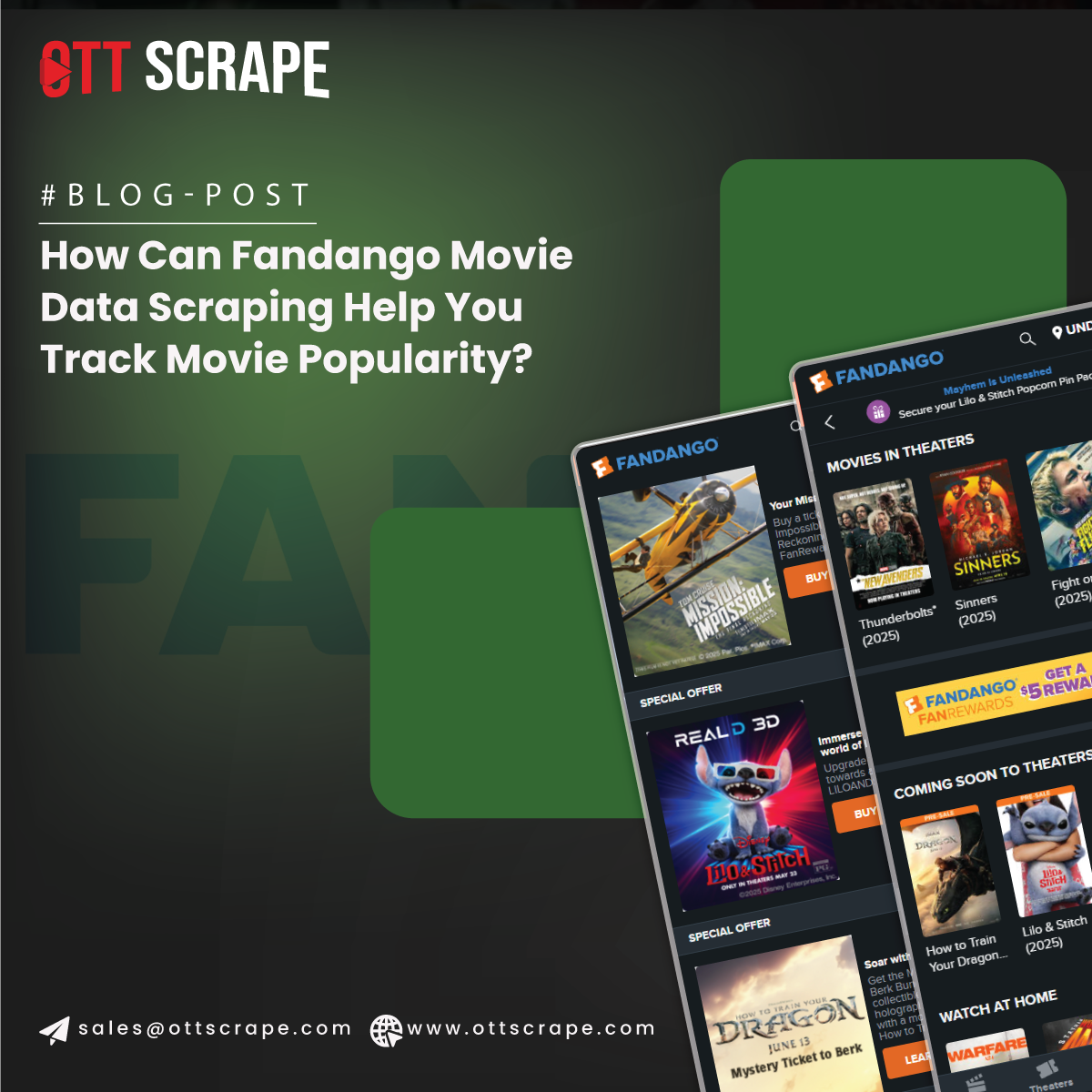
Strong 8k brings an ultra-HD IPTV experience to your living room and your pocket.
Introduction
Fandango is a leading online destination for movie lovers to explore new releases, view showtimes, and easily buy tickets. Beyond serving moviegoers, Fandango offers a rich data repository that is valuable to developers and analysts. With access to details like movie titles, genres, ratings, and theater schedules, Fandango Movie Data Scraping becomes a valuable strategy for gaining industry insights. Using Python Web Scraping Fandango methods, users can extract structured movie information for trend analysis, audience behavior tracking, or even to power personalized recommendation systems. This blog presents a hands-on guide to Scrape Fandango with Python using the efficient lxml library. It covers everything from setting up the scraping environment to parsing movie details and transforming raw HTML into actionable datasets. Whether working on a data science project or building a film-centric app, this comprehensive approach equips you with the tools to unlock Fandango's hidden data potential.
Why Scrape Fandango?
Fandango is a centralized hub for movie information, aggregating details about films in theaters, upcoming releases, and user ratings. Web Scraping Fandango Showtimes allows researchers, developers, and analysts to:
Track movie popularity based on ticket sales or user ratings.
Analyze genre trends across different regions or periods.
Monitor showtime availability and theater distribution.
Build datasets for machine learning models, such as predicting box office success.
Developers can efficiently extract structured data from Fandango's web pages using Python and LXML Fandango Scraper, a powerful XML and HTML parsing library. Python's simplicity and LXML's speed make them ideal combinations for web scraping tasks, especially when handling complex HTML structures. This approach streamlines the extraction of real-time movie data, enabling efficient analysis and actionable insights for entertainment professionals, analysts, and enthusiasts alike.
Understanding Lxml and Its Role in Web Scraping
The lxml library is a high-performance tool for parsing XML and HTML documents in Python. Unlike other libraries like BeautifulSoup, lxml is built on the C libraries libxml2 and libxslt, offering faster processing and robust handling of malformed HTML. Its key features include:
Support for XPath and CSS selectors for precise data extraction.
Efficient parsing of large HTML documents.
It is compatible with Python's ecosystem, including libraries like requests for fetching web pages.
For scraping Fandango, lxml is particularly useful because it can navigate the site's nested HTML elements and extract specific data points, such as movie titles or ratings, with minimal overhead. With Python's requests library to retrieve web pages, lxml enables a streamlined scraping workflow.
Setting Up the Environment
You'll need a Python environment with the necessary libraries to scrape Fandango. The primary tools are:
Python: Version 3.8 or higher is recommended for compatibility.
Requests: These are for sending HTTP requests to Fandango's servers.
lxml: This is used to parse HTML content and extract data.
You can install these libraries using pip:
pip install requests lxml
Additionally, ensure you have a code editor (e.g., VS Code) and a basic understanding of HTML structure, as Fandango's web pages use standard HTML elements you'll need to inspect.
Inspecting Fandango's Website Structure
Before writing any code, it's essential to understand Fandango's HTML structure. Fandango's movie listings are typically found on pages like the "Movies" section, which displays films currently in theaters or coming soon. To identify the data points to scrape, use your browser's developer tools (usually accessed by pressing F12) to inspect the page.
For example, movie titles might be contained in h2 tags within a specific div class, while ratings could be in span elements with a unique class name. XPath expressions, supported by lxml, allow you to target these elements precisely. Common data points to extract include:
Movie title
Genre
User rating (e.g., Fandango's "FanRatings")
Release date
Showtimes and theater locations
By exploring the HTML, you can map out the elements to target, ensuring your scraper is accurate and efficient.
Writing the Scraper
Let's outline a Python script that uses requests and lxml to scrape movie data from Fandango. The script will fetch a page, parse its HTML, and extract key details about movies.
Applications of Scraped Fandango Data
The scraped data has numerous applications, including:
Market Analysis: Identify which genres or films are trending based on ratings and showtime availability.
Recommendation Systems: Use ratings and genre data to suggest movies to users.
Theater Optimization: Analyze showtime patterns to understand theater scheduling strategies.
Sentiment Analysis: Study user ratings to gauge audience reception of films.
Combining the scraped data with other sources (e.g., IMDb or Rotten Tomatoes) allows you to create richer datasets for more complex analyses, such as predicting box office performance.
Best Practices for Scraping
To ensure a robust scraping process, consider these tips:
Respect Rate Limits: To avoid being blocked, avoid sending too many requests in a short period. Add delays between requests using time.sleep(1).
Handle Errors Gracefully: Use try-except blocks to manage network issues or changes in page structure.
Monitor Website Changes: Fandango may update its HTML, so periodically check your XPath queries for accuracy.
Use Proxies if Needed: Proxies can help avoid IP bans for large-scale scraping.
How OTT Scrape Can Help You?
1. Comprehensive Data Collection: Our OTT data scraping services gather a wide range of streaming data, including movie titles, genres, ratings, release dates, and viewing patterns, giving you a complete overview of available content across platforms.
2. Real-Time Insights: We collect up-to-date information on current and upcoming releases, ensuring you can always access the latest streaming trends and viewer preferences.
3. Content Performance Analysis: Our services enable data extraction on audience engagement and content popularity, helping you analyze which titles perform best and tailor your strategy accordingly.
4. Platform Comparison: We provide comparative data from multiple streaming platforms, allowing you to analyze content availability, trends, and pricing across various OTT services.
5. Customizable Scraping Solutions: Our OTT data scraping services can be customized to meet your specific needs, whether you're focusing on a particular genre, platform, or geographical region for more targeted insights.
Conclusion
Scraping Fandango's movie data with Python and lxml offers a powerful way to gather insights about films, theaters, and audience preferences. By leveraging requests to fetch pages and lxml's XPath capabilities to extract data, you can build a flexible and efficient scraper tailored to your needs. Whether you're analyzing market trends, building a recommendation system, or exploring theater schedules, the data from Fandango is a treasure trove for data-driven projects. With careful planning and adherence to best practices, you can Extract Movie Details From Fandango and unlock insights into box office performance, movie genres, and ratings. Additionally, for businesses looking to gain an edge, Fandango Data Scraping Services can provide valuable, structured data that can be integrated into your analysis or product offerings while harnessing the speed and precision of lxml in Python.
Embrace the potential of OTT Scrape to unlock these insights and stay ahead in the competitive world of streaming!
Know More: https://www.ottscrape.com/fandango-movie-data-scraping-track-movie-popularity.php
Note: IndiBlogHub features both user-submitted and editorial content. We do not verify third-party contributions. Read our Disclaimer and Privacy Policyfor details.

